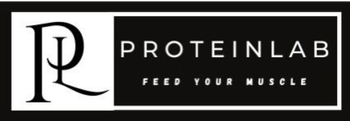What is Testosterone, it's benefits, and side-effects?
Don't believe what those ads tell you about testosterone. Here's everything you need to know about what it does in your body, how to maintain healthy levels, and much more!
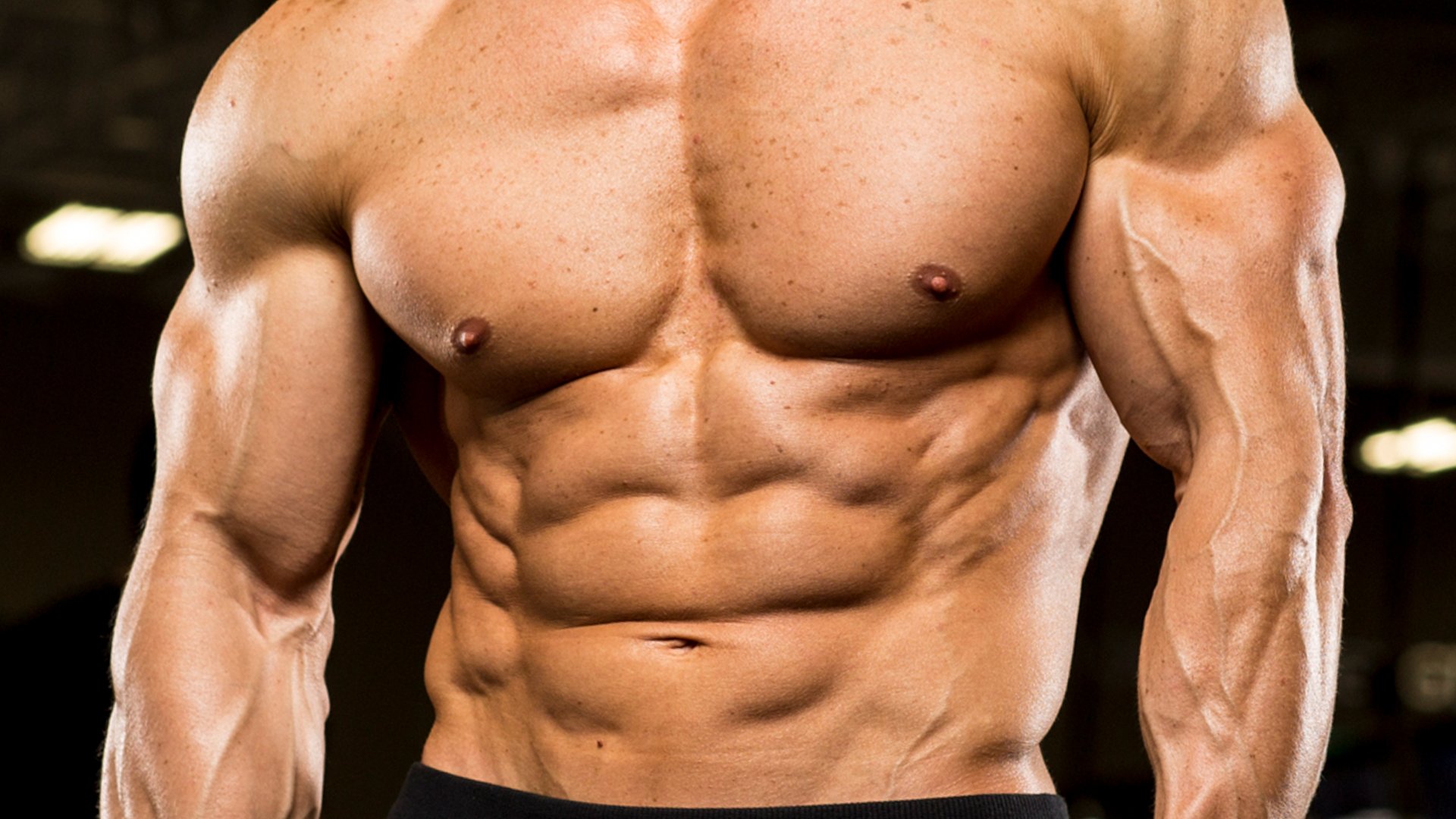
Testosterone is one of the most important tools in your body to grow, repair, and thrive. It's also an increasingly popular medical treatment for men looking to pause —or even reverse —the clock. If you're trying to naturally raise your testosterone levels or are considering taking a testosterone-boosting supplement, don't go in blindly! This is your complete education in the king of anabolic hormones.
THE HISTORY OF TESTOSTERONE
Imagine sitting at a scientific conference in Paris, on June 1, 1889, when your 72-year old colleague, Dr. Charles Brown-Sequard, describes miraculous improvements in his physical and mental stamina, and even the arc of his urine flow ever since first injecting himself with a concoction of blood, semen, and testicular fluid he had extracted from the testicles of dogs and guinea pigs. Gross...and a bit creepy, right? Not in 1889, apparently.
Brown-Sequard's "Elixir of Life" would be prescribed by over 12,000 physicians by the end of that same year. However, it wasn't until 1935 that the hormone responsible for these remarkable anti-aging, energy, and performance-enhancing benefits would get its name: testosterone. That same year, both Swiss researcher Leopold Ruzicka and German researcher Adolf Butenandt would discover how to synthesize it for commercialization, and later be jointly awarded the Nobel Prize for chemistry for the achievement.1
Ever since then, the king of hormones has been one of the most controversial and sought-after substances in health, fitness, and sport. But fortunately for Fido, dogs no longer have to donate the family jewels in your quest for the fountain of youth and weight-room domination.
WHAT IS TESTOSTERONE AND HOW IS IT PRODUCED?
Chemically, testosterone is a steroid. Biologically, it's an androgenic (male) sex hormone. In the eyes of the law, testosterone is a controlled substance —at least in the U.S., U.K., Canada, and Australia. If you live in or travel to places like Mexico or Thailand, you don't need a prescription to obtain it.
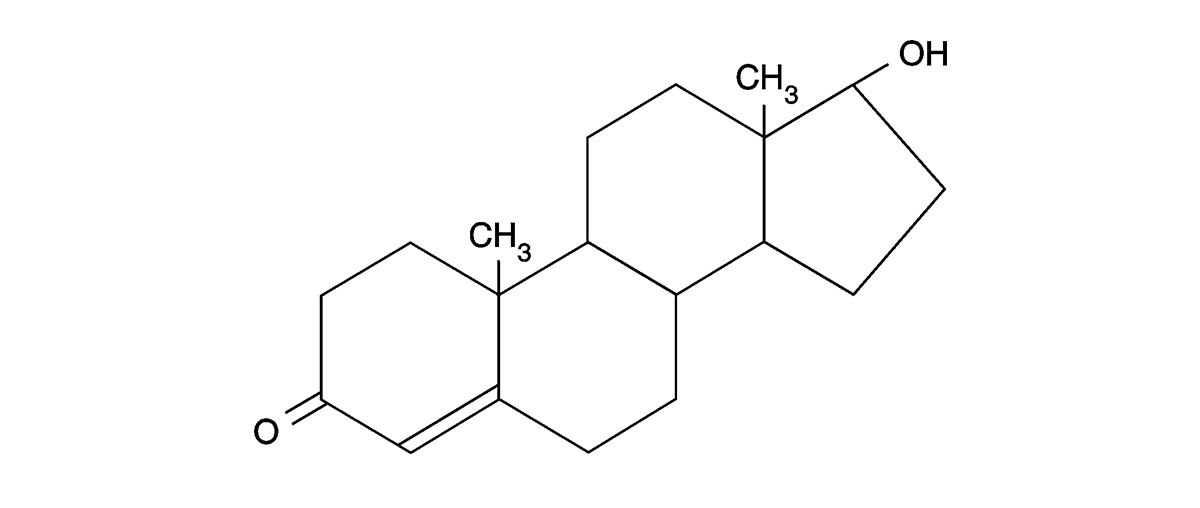
Men and women both produce testosterone, with the typical adult man producing about 5-10 milligrams per day and the average adult female producing at least 10-fold less per day. In men, almost 95 percent is produced within a group of cells located within the testes, and women likewise produce up to 50 percent of their testosterone within corresponding sex glands, the ovaries. The adrenal glands, located atop the kidneys, are also a minor source of testosterone production within men but a significant contributor for women.
The body produces testosterone in still other ways. The hormone gets converted out of dehydroepiandrosterone (DHEA) within tissues, most commonly in women, but only a minute fraction of the testosterone your body produces locally affects circulating concentrations of the hormone.
Regardless of the method of its production in either gender, the compound from which all such sex hormones are originally derived is every nutritionist's sworn enemy: cholesterol.
WHAT ARE HEALTHY TESTOSTERONE LEVELS?
Your levels actually fluctuate throughout the day. In men, testosterone concentrations are highest in the morning, but gradually decrease throughout the day. Normal testosterone production is largely controlled by the rhythmic bursts of another hormone that's released about every 1-3 hours —gonadotrophin-releasing hormone (GnRH).
Those fluctuations aside, in late adolescent and young adult men (19-39 years of age), the average healthy range for total testosterone is between 264-916 nanograms per deciliter.2 For women over 19 years of age, the levels are 8-60 nanograms per deciliter. Of that amount, only about 25 percent is considered "biologically active" Just 2-3 percent is present as free testosterone, and the rest as loosely bound to albumin. The remaining is tightly bound to a protein called serum hormone-binding globulin (SHBG).3
Estrogens increase SHBG in the body, whereas testosterone and other androgens typically reduce SHBG. Therefore, it's possible to have your total testosterone within the healthy, normal range, but if a high percentage is bound to SHBG, then your overall testosterone health —and your muscle tissues' ability to respond to the hormone —will be greatly reduced.
The Testosterone Finger Length Test: A less sophisticated, but still surprisingly valid way to assess if you were born with higher testosterone levels and greater androgen-receptor sensitivity is to look at your right hand.
Laying your hand flat on a table, look to see if your ring finger is significantly longer than your index (pointer) finger. If it is, then you were exposed to more testosterone during development and your androgen receptors were working well.
WHAT DOES TESTOSTERONE DO?
Testosterone can enter cells passively —like a ghost traveling through a wall —and bind to androgen receptors that act directly upon the nucleus of a cell. It can also serve as a prohormone in sex glands and tissues such as your skin, hair follicles, and fat. For example, when the enzyme 5-alpha-reductase is present, such as in the prostate or skin, testosterone is converted to the more potent androgen, dihydrotestosterone (DHT).
In fat tissue, the aromatase enzyme converts testosterone to the estrogen, estradiol. In other words, the more fat tissue you have, the more estrogens your body can form from testosterone. In some cases, both occur: testosterone acts directly upon a tissue, but also as a prohormone by being converted to its androgen or estrogen metabolite.
In adults, testosterone has effects across the body:
- Muscles: Increases protein synthesis, and increases muscle mass and strength.
- Body Fat: Blocks the uptake of fat and storage of fat, and increases the number of fat burning beta-adrenergic receptors.
- Brain: Improves cognition, memory, sex drive, and affects feelings.
- Heart: Increases blood flow and cardiac output.
- Bone: Increases red blood cell production and bone growth, and maintains bone density.
- Male Sex Organs: Supports sperm production and viability, and promotes penis growth and erectile function.
- Skin: Supports collagen production and produces hair.
- Kidneys: Produces erythropoietin (EPO), which stimulates red blood cell production.
Additionally, testosterone increases insulin-like growth factor (IGF-1), and healthy testosterone levels are associated with good health and immune function, lower mortality rates, and lower body fat and increased metabolic rate.4
In men with low testosterone, supplementing with the hormone has likewise been shown to improve energy, muscle mass, libido, sexual performance, and bone mineral density, and reduce body fat, depression, and problems within the urinary tract.5,6 There has also been research indicating that medical testosterone transdermal gel applied once a day by fibromyalgia patients can be an effective therapeutic against chronic pain.7
HOW DOES TESTOSTERONE AFFECT BODY FAT, WEIGHT, AND BODY COMPOSITION?
Low testosterone in men increases fat and weight gain, reduces caloric expenditure, increases the prevalence of blood glucose disorders and insulin insensitivity, and otherwise negatively affects metabolic control. In women, unusually high testosterone has many of the same negative effects.
Collectively and in both sexes, testosterone acts directly within your central nervous system (brain and spinal cord) to regulate metabolism, affecting how well your body burns calories and maintains healthy blood glucose levels.8
For example, when 200 milligrams of prescription testosterone enanthate was injected just once per week for six months, in men ages 21-37 that were healthy but didn't exercise, testosterone levels increased by 91.1 percent. Lean mass concurrently increased by 9.6 percent, and body fat reduced by 16.2 percent.9
The results of 59 studies involving more than 5,000 subjects concluded that younger adults realize the greatest decrease in blood glucose in response to using prescription testosterone, as do adults with metabolic disorders. The studies also concluded that supplementing with testosterone significantly increases lean muscle mass, reduces body fat, and makes the body more sensitive to insulin.10 Data from these same studies suggested that with no change to exercise or diet, just adding supplemental testosterone can reduce body weight by up to 11.5 pounds in two years.11
Studies involving over 1,000 healthy adults have reported similar effects, with a typical 6.2 percent decrease in body fat and 2.7 percent increase in lean body mass in response to taking prescription testosterone.12 The greatest effects occurring as the result of increased fat and glucose metabolism, and an increase in muscle mass.
HOW DOES TESTOSTERONE AFFECT MUSCLE PERFORMANCE?
Though many of the benefits of the testosterone produced in your body occur as a result of its conversion to its more potent androgen or estrogen, that's not the case in muscle. Testosterone acts directly to stimulate muscle growth, which is why it's called an anabolic steroid —even when your body is what's making the steroid.
How Testosterone Makes Muscles Bigger: The prevailing theory is that testosterone activates and increases the number of muscle fiber precursor cells, called "satellite cells." Once activated, these precursor cells can become incorporated into existing muscle fibers to make them bigger (hypertrophy), or the satellite cells can fuse together and themselves form new muscle fibers (hyperplasia).
Additionally, testosterone increases the number of control centers—nucleuses (myonuclei)—present within a muscle fiber, thereby also increasing the number of available androgen receptors that testosterone can bind to within muscle. When combined with training, which increases the sensitivity of androgen receptors, and the consumption of essential amino acids necessary to support protein synthesis, the effects of testosterone on muscle and performance is significantly amplified.13,14
Testosterone is also anti-catabolic because it blocks the ability of catabolic hormones like cortisol to bind to their primary receptors. Thus, testosterone is both an anabolic and anti-catabolic steroid. This makes it fundamental for building and maintaining muscle mass, and for rapid exercise recovery.
How Testosterone Makes Muscles Stronger: Until recently, it was thought that testosterone increased strength and power simply by increasing muscle size. However, testosterone has also been shown to increase the amount of calcium that's released within the cell, which can boost the force of muscular contractions. Similarly, in a recent rodent study, DHT has been shown to directly stimulate muscle contraction force output by up to 24-30 percent in both power and endurance muscle fibers.15
How Testosterone Boosts Endurance: People aren't just interested in testosterone's muscle building and recovery benefits. Testosterone increases EPO, which stimulates red blood cell development. More red blood cells means more oxygen carrying capacity within the blood and to working muscles. Injecting adult rodents with testosterone has even been shown to increase the number of fat-burning and energy producing factories (mitochondria) present within cells, and improve mitochondrial function. If the same occurs in humans, that could have a profound effect on performance and is a major area of interest for anti-aging research.16
How Testosterone Boosts Athletic Performance: As long as testosterone levels are within normal ranges, where they stand doesn't seem to affect athletic performance in men. Blood collected from hundreds of male and female Olympic-level track and field athletes that competed in the 2011 and 2013 World Championships revealed that, in men, sprinting activities significantly elevated bioavailable testosterone, whereas throwing activities reduced it. In neither case did it predict how they actually performed.
In women, on the other hand, those with the highest free testosterone in the 400 meter sprint and hurdles, 800 meter sprint, the hammer throw, and pole vault outperformed their low-bioavailable testosterone counterparts by a margin of between 1.8 and 4.5 percent.17
HOW DOES TESTOSTERONE AFFECT SEXUAL HEALTH AND FERTILITY?
Beyond its roles in male sexual development and fertility, testosterone supplementation has been nearly conclusively shown to improve sexual function in men. Researchers have summarized the benefits of testosterone on male sexual function as being five-fold:
- Physiological: Testosterone stimulates nitric oxide and blood flow.
- Structural: Testosterone helps ensure that a man's penis is working and performing properly.
- Neural: Testosterone improves the tissues involved in, and flow of impulses needed, for sexual activity.
- Antagonistic: Testosterone blocks the enzyme that would otherwise cause a man to lose an erection.
- Supportive: Testosterone helps counteract the adverse effects on sexual function that are common with obesity, diabetes, and aging.18
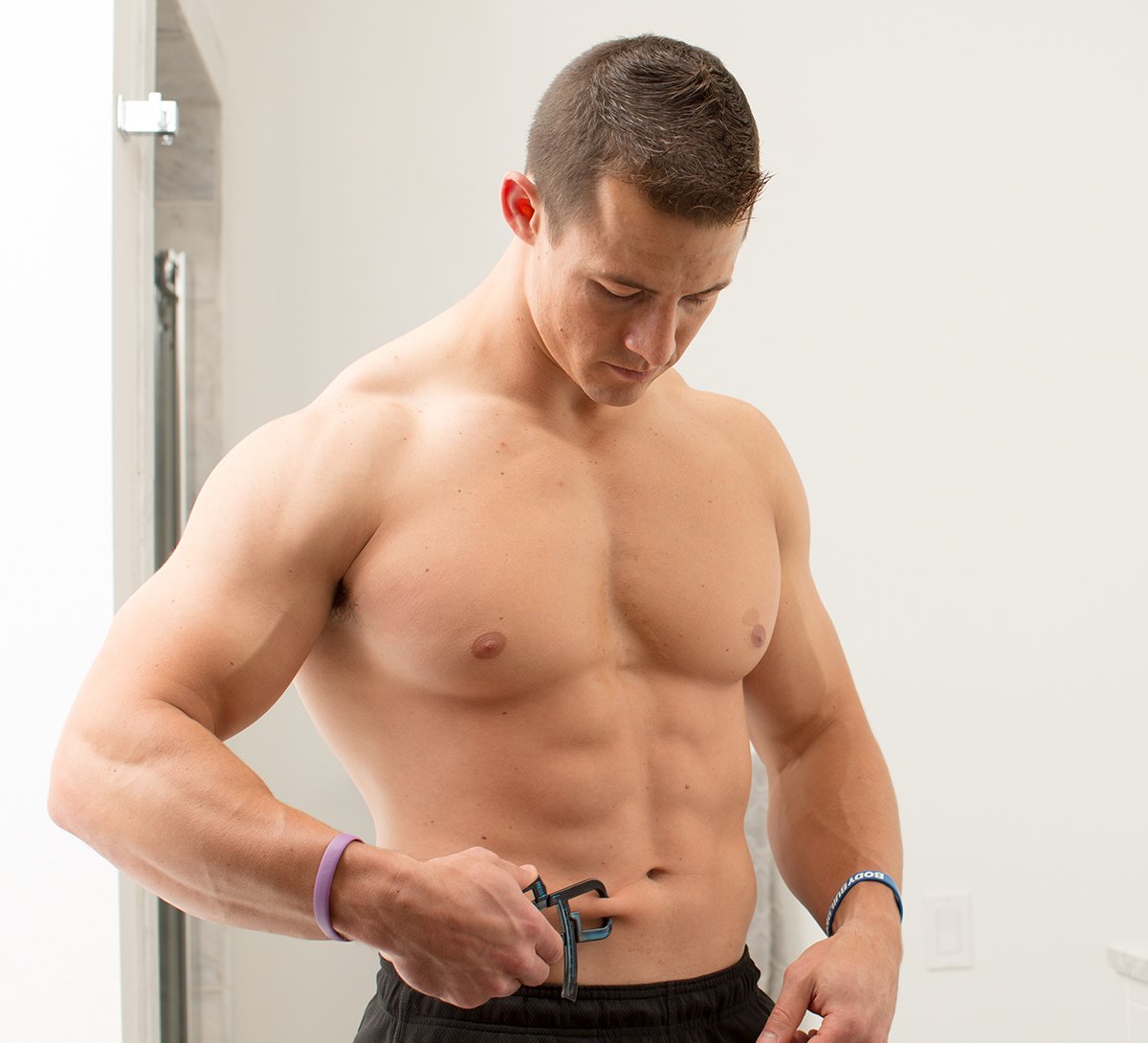
Though high-dose testosterone supplementation can cause infertility, high-dose testosterone therapy is only about 70-90 percent effective as a form of male birth control, which is to say it's less consistently effective than the use of oral contraceptives in women.19 Though fertility usually returns to normal within months or years after discontinued use of prescription testosterone in men, prolonged use of it can cause permanent infertility.20,21
A recent study showed that total and free testosterone, as well as its adrenal steroid precursor, DHEA-S (sulfated form), are significantly lower in women who report low sexual desire, arousal, and ability to orgasm.22 When you consider that as many as 43 percent of all women, ages 18-59, report significant sexual dysfunction and 27-32 percent of women reportedly have a low sex drive, it's no wonder there's been a rise in the amount of testosterone being prescribed to women in search of a more fulfilling sex life.
Collectively, the research in women with low sex drive or in menopause supports the safe and effective use of testosterone therapy to increase sexual desire, activity, pleasure, and orgasms, with an increase in acne being the only notable side effect.23
HOW DOES TESTOSTERONE AFFECT THE BRAIN?
The most common effects of testosterone on the brain are that it increases social dominance behaviors, and risky decision making. The more testosterone present during fetal development, then again during puberty and adolescence, the more likely that person will be intelligent but lacking in certain social skills, such as empathy or restraint. They may also act more aggressively.24
Both human and animal research has shown that aggression increases when supplemental testosterone is used during adolescence (beginning at puberty and ending by about age 27 in most men and women). When used by adults, that doesn't seem to be the case.25 Put another way, those guys who get more aggressive and blame it on "roid rage" are probably just a-holes and have always been a-holes. Taking testosterone just gives them, and everyone around them, a convenient excuse for their behavior.
In general, men, but not women, with higher levels of naturally occurring testosterone appear to have better memory recall. This has led some researchers to study whether there might be a link between low testosterone and greater risk for dementia or Alzheimer's disease.26 When aging men with or without low testosterone and having impaired or no impaired brain function have been prescribed medical testosterone, the improvements on brain function seem to support that a link between testosterone and age-related cognitive diseases may indeed exist.27
HOW DOES STRENGTH TRAINING AFFECT TESTOSTERONE LEVELS?
In general, higher volume weight training performed at an intensity above your current threshold stimulates testosterone production.13,28
If you typically get exhausted by performing 5 sets of 5 reps of bench press, with 2-minute rest periods between sets, reducing the weight so that you burn out at 10-12 reps per set should increase your relative training volume and stimulate a testosterone response.
The same approach can be applied to cycling or running, or performing high-intensity interval training: Do more work in less time to produce more testosterone. Once your body adapts, though, you'll need to continue making changes or else you won't stimulate that same testosterone response. In other words, if you want to keep experiencing a boost in your testosterone from your workouts, then you need to keep increasing your total or relative volume.
Research also suggests you'll have a higher testosterone response if you train later in the day versus in the morning. However, that effect probably has more to do with already possessing high levels of testosterone in the morning, so there's probably little room for change.13 The best advice here is to train whenever your energy levels and focus support your being able to train with the greatest intensity.
HOW DOES MINDSET AND LIFESTYLE AFFECT TESTOSTERONE LEVELS?
Testosterone isn't called the "King of Hormones" for nothing. Athletic competition, winning, feeling like a winner, achieving a personal best, or just being in a position of domination can boost testosterone.13,29 If you lack confidence then you've already lost the testosterone game.
Simply wanting to win a competition doesn't mean you'll have a boost in testosterone, you also have to be the type of person with nerves of steel. Being rattled by stressful situations and producing a lot of cortisol reduces your testosterone response.30 For example, being self-confident and in good spirts before a tennis match was related to higher testosterone levels. Winning the match stimulated testosterone even further. A similar experiment in judo fighters showed the same results.13 Like gorillas protecting their territory, competing on your home turf also increases testosterone.31
Feeling like a winner may also explain why on days when the sex gods shine brightly on you, you're likely to have higher testosterone than when you get no lovin'. And speaking of sex, at least in men, viewing sexual images increases testosterone levels. Sadly, just thinking about sex doesn't raise testosterone.31
Testosterone and Tobacco Use: Nicotine use, because it yields a metabolite called cotinine that prolongs the active life of testosterone, has been consistently shown to raise total and free testosterone in men, and there's a positive trend toward higher testosterone in women that smoke.32,33 Whether or not e-cigarettes, nicotine gum, or chewing tobacco provide the same testosterone-boosting effects has yet to be assessed.
Don't start a two-pack-a-day smoking habit, though! Increasing smoking has the opposite effect and increases SHBG, thus reducing bioavailable testosterone.33
HOW DO I MAINTAIN HEALTHY TESTOSTERONE LEVELS NATURALLY?
In men, age is your enemy. Total testosterone declines and SHBG increases (meaning bioavailable testosterone decreases) with each decade, beginning after you reach adult maturity at around 30 years of age.31 There's not much you can do about the number on your driver's license, but you can optimize plenty of other areas of your life for testosterone production.
Limit drinking. Excessive intake of alcohol has a negative effect on total testosterone, but just consuming alcohol actually increases your testosterone-to-cortisol ratio, most likely because of the false sense of confidence that alcohol provides, along with its ability to (temporarily) drown out stress.
Control stress. Chronic stress, including overtraining, decreases total testosterone and reduces your anabolic-to-catabolic ratio of testosterone-to-cortisol.31 Acute stress, such as a strenuous, high volume workout has the opposite effect.
Don't over diet. To keep testosterone levels at their peak, you'll want to avoid prolonged, extreme low-calorie dieting, "starvation diets," or extreme fasting.13 What may seem contradictory is that blood testosterone levels acutely decrease in response to eating. What's likely occurring is that certain types of fats and protein increase androgen receptors within muscle, thereby removing more testosterone from circulation as the hormone is taken up by muscles to stimulate protein synthesis and glucose metabolism.13
Have a post-workout shake. Unpublished research out of Auburn University (on which I am an author, full disclosure) has indeed shown that whey protein, but not a soy or leucine-enriched amino acid supplement significantly increases the amount of testosterone shuttled into muscle cells when measured six hours after exercise and ingestion of a post-workout whey supplement.34
Don't overdo endurance work. Intense, chronic endurance training also has been shown to consistently and significantly lower testosterone. However, moderate endurance exercise has little or no effect on testosterone.13 In general, as total distance and energy expenditure from endurance training increases, testosterone decreases.
Stay lean. Studies in identical twins show that an increase in body fat results in significantly lower total and bioavailable testosterone, lower DHT, and higher circulating estrogens because of an increase in the aromatization of testosterone to estrogens.35
WHAT OTHER LIFESTYLE FACTORS CAN LOWER MY TESTOSTERONE?
A few other lifestyle factors affect testosterone levels, though not necessarily in ways that you can—or should—try to work around.
Family Planning and Families: If you're a woman and take oral birth control, you'll likely have lower testosterone levels than if you didn't take the pill. Getting married and having children can also reduce testosterone in women. Even the simple act of nurturing of a crying infant also lowers testosterone in most women.36,37 Does this mean you should avoid any of these things? Definitely not. But be aware of them. As your kids get older, their testosterone-reducing effects on you should decrease.
In some, but not all studies, it appears that men aren't immune to this effect, either. Uncommitted single men typically have the highest testosterone, while men in a committed relationship have reduced testosterone. Being married can lower testosterone even more, and being married with young children typically yields the lowest levels of circulating testosterone.
All of this evidence supports the "challenge hypothesis" that arose from bird research and shows that male testosterone levels tend to rise and fall based upon competing with other men for a mate or dominance.
I don't imagine this is just a male thing, either. Though marriage and having young children seems to reduce testosterone in women when compared to their unmarried or married peers who have older children, the data in women with young children shows that those who have a spouse have higher testosterone levels. The takeaway: competing for parental dominance probably affects a woman's testosterone levels, too. My wife's testosterone is probably off the charts!
The bad news for families, but the good news for testosterone levels, is that a man's testosterone levels increase after divorce.37
Spectator Sports: Watching your favorite team win or lose a competition stimulates testosterone, much in the way that you personally winning or losing a competition does.31
Anxiety, Illness, and Injury: Being anxiety prone can reduce your output of testosterone.13 Injuries, serious illness, and surgeries have also been shown to reduce testosterone. This has led to some studies showing beneficial effects on recovery from orthopedic and cosmetic surgeries when testosterone is prescribed and begins prior to surgery.31,38,39
Chemical Exposure: Lastly, many synthetic and natural chemicals have been shown to increase the aromatization of testosterone to estrogens, as well as reduce testosterone and androgen receptors. For instance, almost all chemicals used to block UV exposure have been shown to reduce testosterone production. Ingredients commonly used in pesticides, as well as plastics, resins, and other binding compounds used in everything from clothing to dishware, paints, and other common household items can all wreak havoc on your testosterone levels, to widely varying degrees.40
WHAT ARE THE SIGNS OF LOW TESTOSTERONE LEVELS?
These are some of the most common symptoms of low testosterone:4
For men and women:- Fatigue
- Depression
- Loss of sex drive
- Loss of pleasure from sex (especially for women)
- Inability to concentrate
- Loss of muscle mass or strength
- Reduced sense of well-being
- Reduced body hair
- Increased body fat
- Change in mood
- Increased aggression
- Sleep disturbance
- Problems getting or maintaining an erection
- Absence of morning or nighttime erections
- Hot flashes
- Enlarged breast tissue (gynecomastia)
HOW CAN I INCREASE MY TESTOSTERONE LEVEL WITH TREATMENT?
Prescription testosterone can be delivered as an injectable, through the skin using a roll-on, gel, or patch, implanted under the skin as a slow-release capsule, sprayed as a mist into your nasal passages, or absorbed by sucking on a tablet.
There are advantages and disadvantages of each. For example, testosterone gels and other topical delivery forms shouldn't be used by parents of young or adolescent children, or if you frequently wash your laundry or share a bed, bath towels, or clothes with others, because the risk of transference is very high.41
Supplemental testosterone also shouldn't be used by women who are or want to become pregnant, or who are nursing. It should generally also be avoided by otherwise healthy men who are trying to become fathers or have a family history of androgen-responsive cancers.
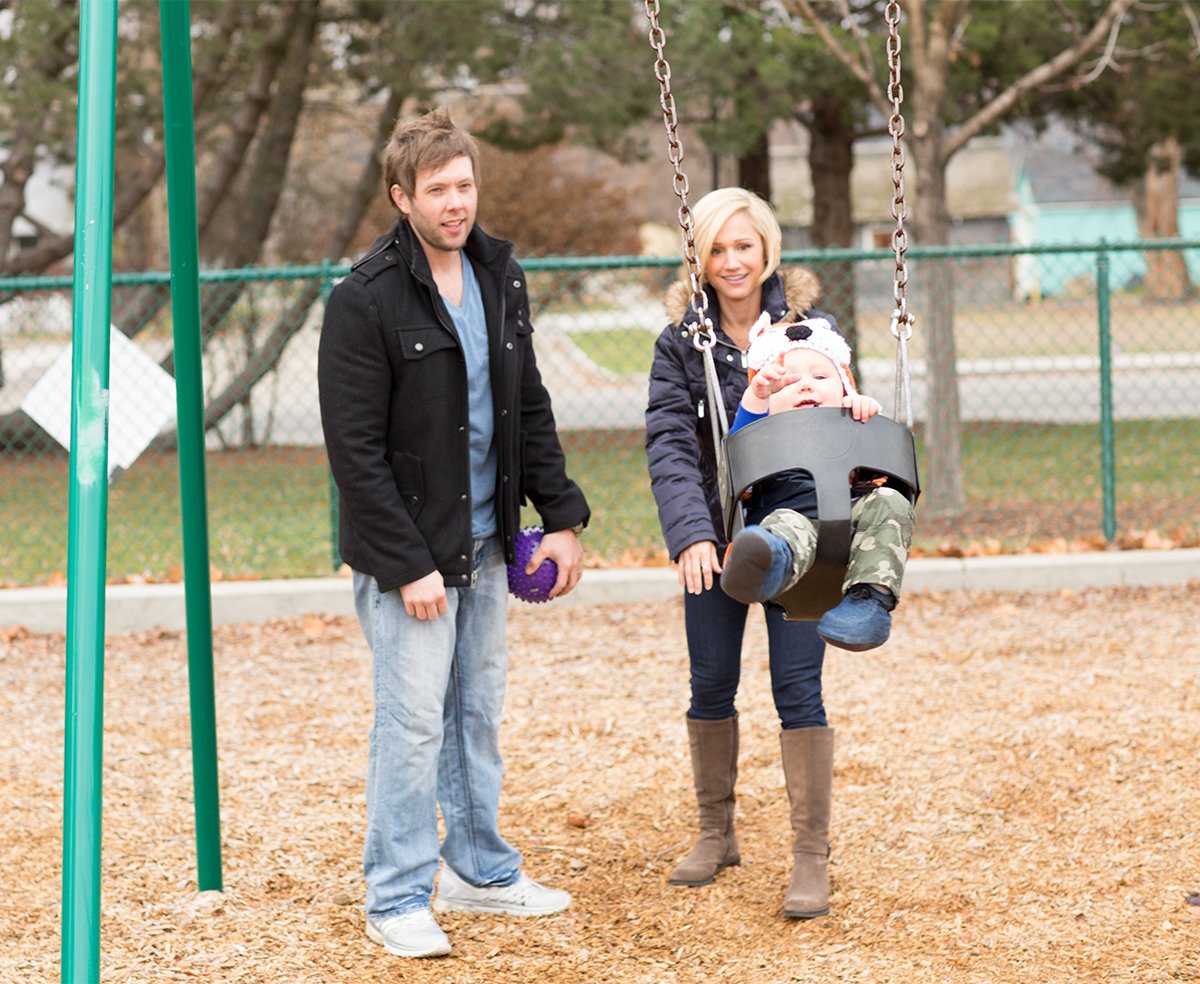
WHAT ARE THE SIDE EFFECTS OF PRESCRIPTION TESTOSTERONE?
The most common side effects of prescription testosterone use are an increase in acne, injection site pain or swelling, and gynecomastia (in men). Aggression, which is commonly thought to occur in response to testosterone use, is actually quite rare, but can occur in some users.
Concerns that testosterone therapy increases the risk of heart attacks or other cardiovascular risks have also been exaggerated. A recent statistical review of 30 studies in men reported no significant link between testosterone use and increased heart attack, stroke, or overall mortality rate.42 Instead, the opposite has been identified! Low testosterone increases the risk of developing cardiovascular disease and dying a premature death.4
Similarly, neither high natural testosterone levels nor testosterone therapy have been shown to increase the risk of prostate cancer in healthy men.4 43 Strong evidence supports the opposite here, too, showing that low testosterone increases prostate and other cancer risks, and accelerates disease progression.4
All bets are off the table when high-dose testosterone and its many metabolites are used illegally, such as with anabolic steroid abuse. Strokes, embolisms, and cardiovascular disease are all more likely, as is sudden death, and liver and kidney disease.44 In women, acne, irreversible deepening of the voice, baldness, increased facial hair, enlarged sex organs, breast reduction, depression, and infertility have all been reported. In adult men that abuse anabolic steroids, acne, baldness, permanent infertility, gynecomastia, loss of libido, erectile dysfunction, testicle shrinkage, and profuse sweating are all reported side effects. Increased testicular cancer hasn't been reported, though.45,46
SHOULD I WORRY ABOUT MY TESTOSTERONE LEVELS?
If you have any concerns, get your levels tested by a doctor. It's that simple. Typically, they'll test for total testosterone, which includes free testosterone and bound testosterone. Those measurements will give you a great place to start.
Unless you have low bioavailable testosterone, or have an androgen receptor disorder that doesn't enable your body to respond adequately to the testosterone your body produces, there's no need to take supplemental testosterone. Just stick with finding natural ways to boost your body's production of testosterone, sensitivity to it, or both, and avoid environmental and lifestyle factors that would otherwise reduce testosterone, increase its conversion to estrogens, or results in chronically high circulating cortisol.
And I can't be clear enough about this: If you do begin experiencing signs of low testosterone, go to your doctor—not the guy at the gym with huge traps and little calves—to seek treatment.
